|
Welcome Danika! Thanks for taking some time to chat about writing. First, a few quick-fire questions: Snow or sand? Big dogs or small dogs? And which of your favorite foods has been difficult or impossible to get since COVID started? Snow or Sand? Snow. Big dogs or small dogs? Big dogs. *whispers* …or small dogs. SORRY! I can’t choose on that one. As for the food that I miss that I haven’t been able to get since lockdown, it would have to be movie theatre popcorn. (And movies, to be honest!) "Big dogs or small dogs? Big dogs. *whispers* …or small dogs. SORRY! I can’t choose on that one." Many writers are unsure of the next steps once they have completed their first novel. They might wonder whether to query agents, reach out to smaller publishers, or look into options for self-publishing. What was your journey of becoming an author like and is there any advice you have for writers who are just at the beginning of their careers? My journey is pretty unique to me… which makes it completely NOT unique for a writer. That’s something I’d remind every young author. It doesn’t matter how much you plan it out, the journey to publication is going to be different for everyone. My second piece of advice is: finished is better than perfect. As for my own journey, I started out with a book that I wanted to publish. I queried for months, and although I got plenty of good feedback from agents who looked at it, I didn’t have anyone willing to sign. I wrote more books… time passed. And when I felt that I had a manuscript that was even better than my first, I queried again. This time I had a number of agents reach out, and I ultimately signed with my first agent: Morty Mint of Mint Literary here in Canada. "It doesn’t matter how much you plan it out, the journey to publication is going to be different for everyone. My second piece of advice is: finished is better than perfect." We had a really good run together for about five years and Morty sold a number of my titles. One interesting fact is that while Morty was putting my thriller Edge of Wild (Stonehouse, 2016) out on sub, I sent a completely different novel, All the Feels (Macmillan, 2016), in the young adult genre, into an open submission… and it was selected for publication by Macmillan. Suddenly I had two books, in two completely different genres, and they were BOTH getting published the same year. "One interesting fact is that while Morty was putting my thriller Edge of Wild (Stonehouse, 2016) out on sub, I sent a completely different novel, All the Feels (Macmillan, 2016), in the young adult genre, into an open submission… and it was selected for publication by Macmillan." In the time since 2016, Morty has retired and I signed with my current agent, Moe Ferrara of BookEnds Literary. I have several more YA and thrillers out, and I’ve had many successes along the way. One thing I was particularly proud of was having Switchback selected as one of the “Best YA Books of 2019” by the Canadian Children's Book Centre. See? Different paths… different journeys… all with the same end result: publication. You have been able to find success with titles in both YA and Adult Mystery. A lot of ‘new’ writer advice suggests finding one genre and sticking with it. How were you able to navigate writing in two very different styles of books while maintaining your brand and identity as an author? For me, the book tells me what genre it is, and I just follow the characters along, scribbling as fast as I can. Once I hit flow, I find it quite easy to stay in the right “voice”. My thrillers are suspenseful and highly descriptive. My YA are edited down to the bone, with dialogue taking a much bigger role. I don’t consciously think about these differences as I write. They just naturally occur. As to “sticking to one genre” I happen to like exploring and writing in multiple genres—in fact, I just put a science fiction novel out on sub—so I’ve never really tried to limit myself. This works for me, but I could see it being a challenge for some authors. Again, I think whatever works… works. My brand is a Canadian author who happens to write multiple genres. It does require a little bit of tone-shifting during promotions for books, since my thrillers are quite dark. Strangely though, I’ve got readers who follow me quite avidly and read books by me in both genres. That always feels good! "For me, the book tells me what genre it is, and I just follow the characters along, scribbling as fast as I can. Once I hit flow, I find it quite easy to stay in the right 'voice'." Perhaps the most grueling aspects of being a writer is just that: writing! As an author who has finished and published more than a half-dozen books, can you share a bit about what drives you? Are their routines that help you stay productive? Is it a natural part of you or did you have to train yourself into that level of productivity? Writing gives me joy, so I find it quite easy to write and I’ll often lose track of time while writing. When I’m editing, however, I have to fight for every word. In those times, I set an alarm early and write before anyone else in my house is awake. I make myself complete a thousand words a day. It’s not actually that much, but it adds up quickly. Yes, part of this is training, but it comes down to the fact that I look at writing as a job. You have to get the words down and the only way to do it is to sit down and WRITE. I make my deadlines—all of them—and I remind myself that you can always edit garbage, but not blank pages. "You have to get the words down and the only way to do it is to sit down and WRITE. I make my deadlines—all of them—and I remind myself that you can always edit garbage, but not blank pages." Many of your books, including All the Feels, Internet Famous and Ctrl Z, explore how our lives online often intersect, overlap, and collide with our lives in the physical world. As a writer, what interests or concerns you most about the newer technologies that are emerging today? I am mostly quite technology-positive (if that’s even a word :), though I am quite careful about where I go online and what access I provide to strangers. Of course I have very serious concerns about things like the dark net and piracy and identity theft, but in a broader sense, my biggest concern is about how everyone interacts. To explain, when people wear a mask as an anonymous poster, they behave more horribly than they ever would be in person. You see it all the time with people being harassed, doxed and threatened. THAT lack of empathy, to me, is one of the biggest dangers. We have both spent time living near and exploring the Canadian Rockies. It seems that their impression has also made its way into our fiction! What other aspects of being a Canadian have influenced your work and what unique contributions do you think Canadian authors bring to the international writing scene? Since Macmillan is based in the US, I have a list of “Canadianisms” that I carefully and studiously remove from my early drafts. Overall, however, I simply assume that my perspective as a Canadian is intrinsic to my work. Many of my novels take place in Waterton Park, AB, where I grew up, and the whole sense of place—the mountains and the forests—is a character unto itself. My particular perspective, as someone who loves and wants to preserve the untouched areas of Canada, certainly filters into what I write. In a bigger sense, I think that Canadian writers as a whole have brought the Canadian perspective to the world. I’m proud to be part of that tradition. Can you give us a sneak peek of what your next major project will be? Any hints or perhaps a little snippet to get readers excited? Sure! I’m currently writing a ghost story. It has no title (as of yet), and the ghost rarely listens to my direction, but I’m having a blast writing him. Here’s a snippet: Too late, the dial tone buzzed in his ear, and he swore, setting the handset back into the cradle. There was no message; Grant didn’t have a machine for the house line. Whoever it was would have to call back. He hoped it was Caleb. The two of them needed to talk. There were chores to be done, and one person alone couldn’t do them. Grant winced. As angry as he was, he was going to have to come halfway on this, or there’d be no way for the farm to make it to spring. There was no money for a hired farmhand. It was him and Caleb working together or nothing. No use worrying about it. Just need to-- A faint creaking noise, like someone had opened a bedroom door on the second floor, interrupted his thoughts and Grant’s eyes widened. The house was empty… wasn’t it? “Caleb…?” Wind howled around the eaves in reply, while upstairs whatever it was had gone silent. The kitchen where Grant stood was cloaked in darkness, the only light sifting through the windows from the porchlight outside the window. Everything in the room shone blue and purple, black shadows stretching ominously into corners and up walls. An icy finger ran the length of Grant’s spine. “Just the wind,” he muttered uneasily, his voice loud in the quiet room. “Nothing to worry ab—” Another sound, like a scuffling footfall, interrupted. Grant’s chin bobbed and he looked up. A single floor divided him from Logan’s empty bedroom. It was the same room the boy had occupied from a week after his birth until the previous summer (and the awful day that so often visited Grant’s nightmares.) The bed and dresser, pictures and coverlet were the same as they’d been many months before, his absence preserved like a leaf between two pages of a book. Grant swallowed hard. I’m tired tonight. Done too much work. Ain’t slept in days. Another footfall echoed. Grant stumbled backwards, his legs banging against the cupboard in his haste. That sound had come from Logan’s room. No question. Between him and whatever had made the sound was a thin layer of plaster, wooden joists, floorboards, then… what? Shaking, Grant took a single step away from the window. The whole house was dark, but it no longer felt empty. Wind rose again and something creaked in the upper floor. “Caleb,” he called tremulously, “is that you up there?” There was no answer. The hair rose on his arms as Grant forced himself into the darkness. The faint light from the window didn’t fill this part of the house and the kitchen light switch seemed impossibly far away. Heart pounding, he forced his limbs to comply. The sound had come from his late son’s room. He was almost entirely certain of that, but that could mean anything. Couldn’t it? He reached the far wall and flicked on the light. A warm golden glow filled the kitchen and he let out a slow breath. It felt normal again. Fine even. Dirty dishes from the night before filled the sink, empty beer bottles lining the counter. Grant grimaced. Nothing at all. Freaking myself out over nothi-- A crisp footfall snapped directly overhead. Grant’s heart jumped to his throat, his chest heaving with barely constrained panic. What if there’s a prowler in the house? his mind demanded, but that made no sense. Unless… unless… The floor above his head creaked again—heel, toe, heel toe—and Grant’s stomach dropped. What if it’s Logan’s ghost? his mind whispered. What if he’s here… NOW? Last, but not least, where can readers find your books and keep up to date on your latest publications? My young adult titles are available almost everywhere books are sold. My thrillers are for the more discerning, so they’re available in some big box stores, but much more often in smaller indie bookstores. ALL of them can be found online! And if you’re ordering online, I’d encourage you to consider an independent bookstore rather than a massive chain. Indies really are the lifeblood of publishing. Details and information about upcoming releases is available on my website and on ALL of my social media accounts! Thanks for interviewing me, Josh! It was great to chat.
0 Comments
Welcome Thilde! Thanks for taking some time to chat about writing. First, a few quick-fire questions: Dragons or Griffins? Super spicy or super sweet? And if you were to take an all-expenses paid one week vacation to any of the Nine Realms of Norse mythology, where would you go? Dragons! Super spicy! And uhh… Vanaheim! Since it’s the home of the fertility gods, I think a trip to Vanaheim would include some amazing (maybe even spicy?) foods. Perfect for a relaxing trip. Though you’ve lived all over the world, you originally come from Denmark. My family is from Norway and I have loved visiting, especially when visits involve hikes in the fjords. However, I think that Scandinavian countries (Norway, Sweden, and Denmark in particular) have an inflated international reputation as a kind of ultimate ‘utopia’. Tell us one thing about living in Denmark that isn’t so great that most people might not know about. You’ve probably heard about it from science fiction stories, but a utopian society will inevitably create a lot of rules and laws for the greater good in order to maintain its utopia. Denmark is no different in this regard. Imagine this: it’s a cold windy night and you’re walking home. It’s hailing, windy and there’s not a single car or bike on the road. You’re still going to wait a minute on the sidewalk for the pedestrian sign to turn green. If you get the sudden urge to pay a visit to your Danish friend, then you better call to make an appointment. Don’t you dare just “step by”. Us Danes need time to prepare for the straining social interaction of saying “Hello, how do you do?”. Now you want to buy a car? Hmm… That consumes a lot of fuel, and that’s bad for the environment… Tell you what, if you pay 200% of the car price in taxes we will let it slide… for now. "...a utopian society will inevitably create a lot of rules and laws for the greater good in order to maintain its utopia. Denmark is no different in this regard." While the base principle of protecting everyone with laws and unspoken rules is inherently good, there are many of both in a Utopia like Denmark. Taxes, special duties plus VAT are very high but that’s the price of a utopia. If the government says jump, we jump. I think that’s something that people rarely talk about on the international scale, but as I see it, this is both the reason that Denmark works as a utopia and the reason it’s tough to replicate. You can’t pick and choose. It’s all or nothing. You’ve written several books and so you know what it takes to bring a story from conception to completion. What advice would you give to new authors who are working on their first book and are feeling ‘stuck’ somewhere in the middle? Yes, while only Northern Wrath has been published at the time of this interview, I’ve already written books 2 and 3 in the series and am working on a new series, so I have been down this road before. Often my productivity slows down in the middle of a book, because the excitement I started with has kind of dissolved and the ending seems so very far away. When this is the problem, there is really only one solution that I have found. Writing a little every day until you can see the light at the end of the tunnel. It’s easier to write when it becomes a habit, so keep at it, you’re on the right path! That being said, when I do have good writing habits and then get stuck, it’s usually because I’m on the wrong path. I’ve written myself into a corner and I’m not headed in the right direction anymore. "Often my productivity slows down in the middle of a book, because the excitement I started with has kind of dissolved and the ending seems so very far away." What’s needed in those situations is a reassessment of what I’ve written. I go back to when the text was last working for me, and try to figure out what needs to change going forward for it to continue to work. Once I’ve found the issue, I rewrite the concerned section. Sometimes I catch the potential issue early enough that it can be fixed by simply adapting my plans for future chapters instead. Usually though, some immediate rewriting is needed. To new authors I would say the following. As you write through the tough middle of a book remember the fundamental rule: if the writer is bored, the reader will be bored. When you sit in the middle and are not as energetic as when you started, find something in the story that you find exciting to drive you along. If the writer is having fun, chances are that the reader will too. "To new authors I would say the following. As you write through the tough middle of a book remember the fundamental rule: if the writer is bored, the reader will be bored." Our paths toward Viking fiction seemed to have traced a similar arc in terms of falling down the rabbit-hole of our heritage. In what ways has writing Viking-themed fiction shaped your own personal identity as a Dane and as a citizen of the world? I was born and raised in Denmark, but when I was 10 years old, I moved to France with my family. In France, I quickly fit in, learned the language and made a life for myself, and the longer I lived there and the more I travelled and found other places where I could belong, the more I wondered what my connection to Denmark truly was on a cultural level. Looking into the Vikings gave me an answer. It gave me a connection to Denmark that I previously did not have, even when I lived there as a kid. "Looking into the Vikings gave me an answer. It gave me a connection to Denmark that I previously did not have, even when I lived there as a kid." When my family moved away from Denmark, we took a piece of the Norse culture with us. Not the utopian values described above, but some core cultural traits. There was a focus on the family, a lust for exploration, and hospitality was a prime value that I was taught in the home. These were the main traits we exported from the Norse culture and when I began to research the Vikings, I found all of those same values reflected in the ancient Norse culture (primarily evidenced in the Havamal). Finally, I could explain those pieces of my own hybrid-culture. At last, I could define who I was, and I was that way. Before, the hardest question I knew was: “where are you from?” because it felt like I was not from anywhere. I was not from Denmark and I was not from France, so I could never provide an answer that was satisfying, at least to myself. Now, thanks to the Vikings, I can answer the question more easily, because I am from all of these places. Today I may answer that I am from Denmark. Yesterday I might have said France. Tomorrow I may mention my time in England or my time in South Korea. I have taken a piece of all of these places with me. I am not from any one of them, I am from all of them. Northern Wrath, the first book in your Hanged God trilogy, was released in October, 2020. Walk us through your experience of the launch day and the weeks following: What were the highlights? Any surprises? And what advice would you have for authors with an upcoming debut launch?
My fear about a launch was that it might feel anticlimactic. So, a big surprise to me was that things started happening way before the launch date. ARCs (Advance Reader Copies) came out in June and reviews started to trickle in shortly after that. From June until October, I felt like there was a little something happening every day. Might be someone posting a photo of their ARC, someone posting an early review, or an interview request. A little something almost every day. That meant that launch day was not so much a sudden burst of celebrations soon to be forgotten, but more of a natural conclusion to the building excitement. For authors preparing for their first launch, I would hence say: there are a lot of small things you can do before the launch that will get people excited about your book and get them to pre-order it, and take part. Talk about your book, online or in person, and get some excitement going gradually instead of relying purely on the launch itself. That way you extend the celebrations. It certainly made it a great experience for me. "For authors preparing for their first launch, I would hence say: there are a lot of small things you can do before the launch that will get people excited about your book and get them to pre-order it, and take part." One of the historical themes in Northern Wrath is the erasure of ancient Viking customs as Europe embraced Christianity. What parts of this culture did you really want to highlight through the narrative and what lessons have Vikings from the past taught you about living today? At the forefront of my narrative is the idea that culture dictates everything else. The Vikings acted as they did because of their belief-system, which dictated their culture. If you truly believe that in order to get to the cool afterlife, where the awesome gods feast, you first have to die an honourable death in battle… Well then you have to go out and get into some fights to find those battles. Otherwise there’s absolutely no chance of you ending up in that awesome hall in the afterlife. So, you need to go out and find some epic battles, and if you live on a land surrounded by the sea, then you need some good ships that can both carry you far over tricky waters, and will also double as quick escape vessels. As such the infamous longships appear, and people make their life around these ships. There are, of course, the hopeful warriors who search for a worthy battle, but there are also the ship-makers, the wood-workers, and the weavers who suddenly have plenty of work. A whole community and way of life forms around the simple quest of needing to find a worthy battle. "At the forefront of my narrative is the idea that culture dictates everything else. The Vikings acted as they did because of their belief-system, which dictated their culture." It is no mere coincidence that there was a desperation in other countries to turn the Scandinavians towards Christianity, for their belief is what fueled their way of life. When they eventually did turn to Christianity, that way of life slowly lost meaning and purpose, until it was no longer sustainable. Belief being essential to someone’s culture was an interesting concept to me, and it is really around this idea that I built Northern Wrath. As to lessons from the past, I have learned many things. Most of all I learned a lot from spending my summers sailing with a Viking warship, and I feel like I’m still learning from those continuing experiences. Chief among them is the realisation that while individual quests can be grand, a journey has more meaning when there are others aboard. You can’t sail a warship alone, and even if you did manage it, you would not survive the battle at the other end. Your next series is a fantasy adventure set in ancient Korea, a country in which you have lived and have a deep fascination with. How has the process of historical research been for this new novel compared to your first series as you explore territory across cultural lines and over language barriers? Yes, the Hanged God series has been written, and so while book two and three get ready for publication I’m writing my next series, set in 7th century Korea. Writing historical based fiction has two distinct requirements. The writer evidently needs to do research into the historical era, but they also need to know how to interpret the discoveries they make to modern day audiences. Personally, I have encountered two main challenges in my historical research into Korea. The first was a lack of accessibility to primary sources. Most of the material I base my research on for this up-coming series is only available in Korean, but since I both speak and read Korean, there was no significant language barrier for me. Except on the occasions that involved texts written in Hanja with no transcriptions into modern day Korean script. Language was not the issue, but there has been much less research done into this era of Korean history compared to the Viking Age in Scandinavia. A lot of what has been done I was only able to access while being in Korea. Thankfully, in 2019, before the world shut down, I was able to take research trips across Korea. I visited all of the important sites, visited museums, and located elusive texts at distant libraries. I was also able to learn traditional Korean archery, which became integral to the story. I learned a lot during that time, and without that trip I would not be able to write this story. Writing from half-way across the world, I would not be able to acquire about 70% of the knowledge I gained during that time. "I visited all of the important sites, visited museums, and located elusive texts at distant libraries. I was also able to learn traditional Korean archery, which became integral to the story." The second issue I encountered is a little more complex. Let me explain… When I was doing research into the Vikings, I started with the same knowledge base as most Danes and Scandinavians. There were certain things about the Vikings that I knew, and other things I thought I knew that were completely wrong. This meant that I had a really good grasp on what most people in modern day Scandinavia knew about the historical period I was writing about and I also knew what misconceptions I had to fight in the text. With the Korean story though, I did not start with the same knowledge base as most Koreans. Finding out what kind of basic knowledge most Koreans have about the period presented a challenge for me. Every time I asked, I received wildly different answers. To solve this issue, I ended up having to look into the base history curriculum taught in Korean schools and comb through history books made for school kids. "Finding out what kind of basic knowledge most Koreans have about the period presented a challenge for me. Every time I asked, I received wildly different answers... I ended up having to look into the base history curriculum taught in Korean schools and comb through history books made for school kids." Last, but not least, where can readers buy a copy of Northern Wrath and where should they go to keep track of your upcoming publications? Northern Wrath can be found or ordered at any bookshop. Links to buy can be found on my website. News about upcoming projects can also be found on the site. Otherwise, I check Twitter whenever I’m summoned, and happily engage there. So, if you want to interact that is where I can be found.
Welcome Desi! Thanks for taking some time to chat about writing. First, a few quick-fire questions: Sweet or Spicy? Skiing or swimming? And if you could jump 1000 years into the future or into the past for a day then which would you choose and why? I most definitely prefer spicy. My dad used to pay my brothers and I a dollar for every hot pepper we could eat whole. As far as skiing is concerned, I’ve never gone. It’s on my bucket list, but I do love to swim. I have an affinity for the water. And, the last question is an overly-zealous huzzah for the past. I’m a historical fantasy nerd, and damn proud of it. "I’m a historical fantasy nerd, and damn proud of it." What is your creative process like? Is it explosive and exploratory? Is it carefully calculated and scheduled? Do you stick to a writing schedule or do you write around other commitments in your life? With three kids and a mountain of never-ending laundry, I have to write around my other commitments, but since my creative process verges on obsessive, I will forego sleep to get it done. I live inside my head, planning and plotting scenes there until I’m ready to put the notes to paper. I’ll often start by researching an era and all of the culture that goes with it. Once the ideas start sparking, it usually takes off like a wildfire. I can’t type fast enough. That’s when the obsessiveness kicks into overdrive to plot characters, arcs, and then scenes. It’s both wild and calculated. "Once the ideas start sparking, it usually takes off like a wildfire. I can’t type fast enough... It’s both wild and calculated." Besides writing novels you have also written and directed plays for live-stage theater. In what ways has your work in theater changed your perspective as a writer and how this influences your writing? No matter the project, the end goal is the same for me: I want both an audience or a reader to walk through the production or story like it’s their own. I want them to feel something that doesn’t let them go for a while. Regardless of the medium, the satisfaction of tears streaming down an audience member’s face or a review from a reader who wants the next story is something I almost can’t describe. "No matter the project, the end goal is the same for me: I want both an audience or a reader to walk through the production or story like it’s their own." One of my favourite writers is Mary Robinette-Kowal who co-hosts the podcast Writing Excuses alongside the celebrated fantasy author Brandon Sanderson. Her insights on the podcast have really opened my eyes to many of the gender-biases in Sci-Fi and Fantasy that I was blind to before. Are there any glaring biases that you think need to be addressed in the genre right now? Considering that history has predominantly been written and recorded by caucasian men, I find it exhilarating to recover lost stories of women and minorities who were anything but submissive and in the background. They are heroes. They are leaders. They are pillars of history. And, their stories deserve to be told. Your upcoming book Bindle Pink Bruja is a story featuring elements of Mexican folklore involving a jazz club owner in the age of Prohibition. Honestly, I have a hard time imagining a setting more vivid than that for a historical novel infused with magic. How did the setting and the characters evolve in your mind? Did any particular historical figure or folktale inspire the story? So as not to give too much away, I will merely tell you that the story was inspired by two things: an old tale involving magic dirt, and my own family’s journey to and within Kansas City’s Hispanic communities in the early 1900s. One of the characters, an old abuela, is fashioned after my own great grandmother while the MC is a mirror of myself. The book also includes a few cameos of Al Capone and an infamously crooked councilman from Kansas City, Tom Pendergast. Through the online writing community, particularly accounts like Folklore Thursday (@FolkloreThurs) on Twitter, I have learned about so many interesting characters, creatures, and tales from folk culture all around the world. If someone were to dive into the world of Mexican folklore which story or book would you suggest they start with? Take a walk through Mexican Gothic, Gods of Jade and Shadow, and The Beautiful Ones if you’re looking for fictional novels. But, there are so many books out there that have everything from ancient Latin American folklore to scary stories, and common Hispanic folktales, it’s hard for me to choose just one. You also work as a managing editor for EveryWriter. As new writers try to break into the literary scene it is important that they query agents with well-polished manuscripts. However, staring at long documents for hours on end can give writers ‘snow blindness’ to their own mistakes. Do you have any sage tips for error-catching while proofreading? I do a couple of things during editing before querying. Actually, I do all of this editing before even giving my work over to beta readers. First, I’ll do a content edit for each scene, making sure they meet their goal in contributing to the story, and cut out unnecessary or clunky prose. Then, I’ll run the scene through Grammarly to find line edits I may have missed. Lastly, I’ll wait a couple of weeks to let my mind rest, and then do a read-aloud edit. Reading your work out loud makes a world of difference. "Reading your work out loud makes a world of difference." Where can readers keep track of your latest writing and stay up to date on the publication of Bindle Pink Bruja? Look out for the release of Bindle Pink Bruja in 2022 from Harper Voyager!
Welcome Hannah! Thanks for taking some time to chat about writing. First, a few quick-fire questions: Tea or coffee? Oceans or Mountains? And if you could choose any forest creature to have as a tame pet then which would it be? Hey Joshua, thanks so much for having me. Coffee! Mountains! Preferably coffee on top of mountains. As to taming forest creatures, after much deliberation I’ve got to say… a moose. Majestic, unorthodox, and unexpectedly deadly! "...after much deliberation I’ve got to say… a moose. Majestic, unorthodox, and unexpectedly deadly!" You and I are both Canadian authors, a bit of a rarity on the global writing scene. How did being a Canadian influence or impact your path toward publication? Do you have any bits of wisdom to share with unpublished Canadian writers who are currently querying? First of all, I’m so glad we connected! Because you’re totally right, being a Canadian author is a bit of a rarity. That’s likely the biggest impact being Canadian has had on my journey; I had to go it alone for a while before I found friends online who wrote similar things. That sounds a bit sad though. On the flip side, I love how cozy the Canadian author world is! I’d encourage Canadian writers to get established in the online writing communities on Instagram and Twitter. It’s difficult to establish relationships with other writers in real life in a land of big distances and small towns, but they’re crucial! Fantasy, Historical Fiction, and Science Fiction are genres that are very distinct in my mind but are often grouped together by readers and reviewers. As a writer of all three, what key elements make these genres unique for you? Would you categorize them separately or as three strands of the same branch of fiction? I think I have to put myself somewhere in between. They’re separate, as in fantasy is magical and stretches beyond the confines of our daily experiences, sci-fi leans heavily on tech and is probably in space or the future, and historical fiction is set within the confines of the past. But the genres certainly harken to one another, at least in the way that I write and interact with them! So much of fantasy is rooted in history, in the cultures and customs and impressions of former days. So much of sci-fi requires imagining the fantastical, things beyond the world in which we now inhabit. And I, for one, very much appreciate a historical fiction with subtle elements of the mysterious and glimpses of a world which, again, is beyond my own daily existence. The setting of your upcoming debut, Hall of Smoke, is inspired by the Canadian wilderness and the ever-scenic European Alps. I love this common connection in that my trilogy is set in a wilderness blended from my time spent hiking the Canadian Rockies and memorable trip to the fjords of Norway. How did you handle blending the real and the mythic elements of nature in your trilogy? What is your approach to the natural environment while world-building and how did this come through in Hall of Smoke? I love that you’ve blended the Rockies with Norway! When I look back at writing Hall of Smoke, I made very few conscious choices about the setting of the book. I’m very much a discovery writer, and I’ll admit that I do little to no worldbuilding ahead of time. Almost every aspect of the HOS world emerged in scene as I wrote and looked through the character’s eyes, though occasionally I chose to reference my own experiences and harvest them for senses, and that’s where the distinct flavours of my childhood in the bush and my time in the Alps started to come forward. I wrote what felt natural, a place I wanted to experience, and it came together as a new world! "Almost every aspect of the HOS world emerged in scene as I wrote and looked through the character’s eyes..." Though Viking culture is often depicted as very masculine and patriarchal, I love to remind people that in the Norse myths only half of the warriors that die in battle go to Odin’s feasting hall of Valhalla - Freya demands and receives the other half as she gathers her own forces for Ragnarok in her hall of Sessrumnir. As the author of a Norse-inspired fantasy with a female protagonist, how did you navigate the often-troubled history of Norse representation in fiction and are there any misconceptions about Viking culture that you’re hoping to challenge in Hall of Smoke? Since Hall of Smoke is more on the inspired side of Viking-inspired side, I can’t say that I directly set out to challenge any misconceptions. But I do love Norse mythology for the complexity and prominence of female figures, and I was weary of Viking books and series with primarily male protagonists, stereo-typically “male” priorities and content. I enjoy those stories too, but I wanted something more balanced. And I wanted a female lead with all the skill, dignity, and complexity of the women in my life, and the women I see between the lines of the history books. "I wanted a female lead with all the skill, dignity, and complexity of the women in my life, and the women I see between the lines of the history books." Some of my favorite Viking-themed fantasy storylines come from the world of video games. I know that you and I both share a love of Skyrim in particular! What role do you see video games playing in the arena of fantasy and science fiction story-telling, especially as a writer of fantasy in a more traditional sense? I do love Skyrim! I think video games are a fascinating and undervalued arm of the SFF community. They combine so many artistic avenues into one form - visual art, music and sound, cinematics, general storytelling, etc - and I think game developers do not get half the respect they deserve. Personally, I find gaming frees up my mind, giving me a chance to break out of the world I’m currently working in and immerse myself completely in something new. They’re both a tool for me and an ultra-addicting hobby! Right now you have an untitled sequel to Hall of Smoke on the docket, as well as an adult space opera and an adult romantic fantasy. Can you give us any sneak previews or hints about these tales or when they might be forthcoming in print? Unfortunately, I can’t say much! But the sequel to Hall of Smoke is slated for release early 2022. It’s a stand-alone set in the same world, roughly a decade after the events of book one, and will feature some familiar faces. The romantic fantasy is a bit of a passion project, something I’m keeping relatively quiet to free myself up for creativity. The space opera - I have a feeling this one will be big, in the sense of it may take me a few years to get it right. But I’m so excited to explore that world more! I also have a Gaslamp trilogy floating out in the ether that I’d love to see in print in the next few years. Last, but certainly not least, where can readers purchase Hall of Smoke and keep track of your upcoming publications? Hall of Smoke is available wherever books are sold, in paperback, ebook and audiobook formats. All the latest news is available on my main platform, Instagram, as well as my website. Thanks so much for this opportunity, Joshua!
Welcome Bjørn! Thanks for taking some time to chat about writing. First, a few quick-fire questions: What is your favourite kind of cheese? Do you prefer sailing or flying? And if you were to be thrown back in time to the Viking Age what would your weapon of choice be? Cheers Joshua, thanks for having me! Brie plays an important role in my life (oh great, just started salivating), but generally whatever it is they put on pizza is my favourite. So I suppose my favourite kind of cheese is “melted”. I have never had a chance to actually sail. I’ve been on a few moored ships, including Viking ones, but that’s not quite the same. In a few months I’ll have a chance to sail on a real Viking longship for actual research purposes, which is very exciting, but for now I have to go with flying. I’m immediately tempted to say “a hammer,” because that’s what I’m good with, but I don’t think it would be dangerous enough. Give me two throwing axes. "In a few months I’ll have a chance to sail on a real Viking longship for actual research purposes, which is very exciting, You and I have two rather peculiar things in common - one is a love of Viking lore and history and the other is a degree in mathematics! From one mathematical Viking nerd to another, what role do you see numbers playing in Norse mythology and which are the most significant? Three and nine – three times three. There are the Nine Worlds, three Norns take care of the passing of time, Odin was born with two brothers, and when he hung from Yggdrasil to discover the runes, it took him nine days and nine nights. The twenty-four runes are divided into three eights: Freyr’s aett, Hagal’s aett, Tyr’s aett. "There are the Nine Worlds, three Norns take care of the passing of time, Odin was born with two brothers, and when he hung from Yggdrasil to discover the runes, it took him nine days and nine nights." I often like to emphasize that the actual writing of a book is not usually the hardest part; the most difficult thing is actually getting yourself to sit down and write the damn thing. How do you keep yourself accountable and on track when it comes to your writing schedule? I’m disabled and my illness flares up randomly, which makes it impossible to have a schedule. When things are bad, I do very little – sometimes I can’t even read. Then, once I feel better, I decide that I have been magically cured and can go on working for twelve hours. A day later I am so exhausted that I write nothing. I don’t seem to learn from this, perhaps because I love what I do. So I get better again, reopen Scrivener and start again… then rest… then start again… until the book is ready decades later. Typo! Months. I totally meant months. Earlier this year your novel Children was released, the first book in the The Ten Worlds universe which draws heavily from the Norse Myths. The two main characters, Magni and Maya, are the offspring of well known Norse deities and must reckon with the many short-comings of their parents. What drew you to this theme of familial conflict and in what way did family culture of the Viking Age play into the narrative? I read an article about Paris Jackson, who might never get a chance to become more than “the daughter of”. And that was before Finding Neverland showed Michael Jackson in a very different light – now being “the daughter of” carries even more weight. And I thought – how does it feel to be a child of someone so famous that it’s hard to find a person who has never heard about him? When you meet somebody and their eyes light up, and you know it’s never because of you, but your father? "And I thought – how does it feel to be a child of someone so famous that it’s hard to find a person who has never heard about him?" Thor gets half the mythology for himself. He is possibly the best known and most amusing out of all the Norse deities. His son, Magni, only gets two mentions – once when he saves his father from a troll, then after Ragnarok, when he inherits Thor’s hammer. How does it feel to be “the son of” a God everyone knows and worships, while hardly anybody knows about your existence? When people only care for you because you can be a useful tool to get closer to your father – who doesn’t seem to even remember you exist? I didn’t actually try to recreate Viking Age families. I will have to for Land, the next instalment in the series and I’m already dreading it excited. In discussing your process for writing Children, you mentioned that you rewrote the story 29 times! How do you view the editing process in terms of its purpose and function? Do you have any techniques or strategies to ensure that each draft is better than the previous one? I don’t revise or edit in the “traditional” way – I rewrite the whole book over and over. I go through what I have written before, read it, then try to write it again, but better. Sometimes I will finish a part, then immediately go back to its beginning and start again. There are a few scenes in Children that I have rewritten 40-50 times, and I am still not happy with one of them. "It wasn’t until draft 28 that Maya revealed a crucial piece of information to me – she was claustrophobic from the beginning, but it took me 14 months to find out why." My characters tend to hide things from me for a long time. It wasn’t until draft 28 that Maya revealed a crucial piece of information to me – she was claustrophobic from the beginning, but it took me 14 months to find out why. That last moment scene is one of the strongest parts of the book. The whole story would have made much less sense if I stopped with draft 27. This is an unusual writing process and I wouldn’t recommend it to anyone. Any fantasy author would envy your work as a blacksmith. From your time at the forge, what do fantasy writers get wrong about this age-old trade and about weaponcraft in general? Are there any good online resources for those who want to learn more? People underestimate the amount of time it took to create, for instance, a chain maille vest when each of the tiny rings had to be made by hand, then woven with all the others. That’s why only the richest wore chain maille, while most people put on leather and prayed for luck. It’s similar with swords, especially elaborate ones – those things were worth a fortune, because they took so long to produce. And that’s not including many years of learning the craft before you knew how to do it. "People underestimate the amount of time it took to create, for instance, a chain maille vest when each of the tiny rings had to be made by hand, then woven with all the others." Forges are not hot places, unless it’s summer. The fire is not placed on the ground (nobody’s back would survive that), but elevated. In the winter your face will drip with sweat and your feet will be on the brink of frostbite. That one’s not a book, but I can’t believe none of the many great bladesmiths and blacksmiths who worked on Game of Thrones enlightened Gendry that the forge fire is there for a reason when, twice, he grabbed cold iron and began to hammer it. It took me zero minutes during my first class to understand you don’t do that. Can you give us any hints or clues about your next project? Are you continuing to write the The Ten Worlds universe or are you taking a break to write something else? The Norse Gods claimed all my writing time. I’m working on the sequel to Children, called Land, where some deities and their mortal BFFs go to Earth – the tenth world – to discover Iceland. At the same time I’m fiddling with a series of novellas, How to Be a God, humorous retellings of some myths I haven’t worked into The Ten Worlds yet. I’m not a fan of Neil Gaiman’s take on Norse mythology, so I’m writing what I want to read. Last, but certainly not least, where can readers find your books and keep track of your latest publications? The e-books are on Amazon and Kindle Unlimited. The dead tree versions, both paperbacks and hardcovers, are available everywhere – if your local bookstore happens to be open, you can order the book there, same as with libraries.
The best way to keep track with what I’m up to is to subscribe to my newsletter. I tried Instagram, but I just ended up following way too many bearded Vikings for, um, research purposes. I spend less and less time on Facebook, because their latest redesign is actively hostile towards the users. Instead I write 1000 words in Scrivener and 5000 words in my tweets. Welcome back Trey! It’s so great to have you back to talk about writing and your new book! As always, a few quick-fire questions: What is your favourite sequel of all time? What is the worst sequel of all time? And which stand-alone book or movie do you think deserves a sequel? Hi Joshua, and thanks for having me back! Whoa, great question, let’s see. This year I read both The Shining, and the sequel that I didn’t even know existed until the movie came out last year, Doctor Sleep. I’ve got to say, and maybe this is because The Shining has been too hyped up in my mind, but Doctor Sleep was better. A fantastic sequel, and a great book. "I’ve got to say, and maybe this is because The Shining has been too hyped up in my mind, but Doctor Sleep was better. A fantastic sequel, and a great book." Worst sequel is difficult though. There’s so many bad ones! Maybe Spiderman 3? I really loved the first movie with Tobey Maguire, and I didn’t mind the second one either. But by the third, I get what people were saying. It’s too weird. I think the Warcraft movie that came a few years ago deserves a sequel. I’m a big fan of the franchise, having played all the games since Warcraft I in the ‘90s, and I’ve read nearly all the books now. When the movie came, a lot of people were very excited, but I don’t think a single person in the world liked it. They just bit off more than they could chew, so I’d love to see them carry on with that and try to make something better. "I think the Warcraft movie that came a few years ago deserves a sequel. I’m a big fan of the franchise, having played all the games since Warcraft I in the ‘90s..." So since we met a few years back I learned a few things about you. One was that you grew up and worked in the same small city (Haugesund, Norway) that my family emigrated from. Tell us one thing most people don’t know about what it’s like to grow up in Norway! Sorry, I’ve got to correct you there, I didn’t grow up in Haugesund, but I have worked there on and off. It’s a beautiful little harbor town, if a little bit past its prime these days. If I was to try and describe it simply, I’d say growing up in Norway is simple. Simple and quiet. There’s not that many people, and we have a lot of space. I moved to the UK in my teens and remember being surprised by how huge the world really is, when you have millions of peoples, culture and society mixed in one place. It was an eye-opener, and I’d recommend it to anyone to move away from their tiny rural homestead for a while. "If I was to try and describe it simply, I’d say growing up in Norway is simple. Simple and quiet. There’s not that many people, and we have a lot of space."
The second book was definitely harder to write, no doubt. I like to think that’s because I tried harder, pushed myself harder and set a higher standard for myself. With the first book, I just sat down to write without giving it too much though, but with the second (and the third which will follow it) things have to make sense. That being said, I had the ideas for both book two and three straight after I wrote the first. They're in a series, though kind of separated from each other, but there’s an overarching story there that I had clearly in my mind as soon as book one was done. I think I wrote book two faster than one, and book three faster than both. You get to know your characters after a while, so it gets easier while still being difficult. "The second book was definitely harder to write, no doubt. I like to think that’s because I tried harder, pushed myself harder and set a higher standard for myself." You recently stated that, “My stories are always character-driven, because that’s where the conflict is, that’s where you can truly find excitement.” What are the ingredients of story-driving conflict and how can authors who can’t seem to get ‘the spark’ going fix it? The recipe for conflict in any story is simple:
"The recipe for conflict in any story is simple: (i) you need a goal, (ii) something that motivates that goal, and (iii) something that stops that goal being reached." The adventures of Agent Greer are high adrenaline narratives. However, just as in movies, it can’t all be explosions and car chases or else there is no narrative. (Ok, ok, yeah, Mad Max, I know…) So how do you keep up the suspense and tension without wearing out the reader? Peaks and valleys. I build up toward the excitement, pull back a little bit, and then turn it up again. I like to think about it like a horror movie: the idea that something might jump out at you is often scarier than the monster itself. I want to keep you at the edge of your seat, then give you some time to relax before we’re back to that edge. You write both horror novellas and novels which fall in the psychological thriller genre. How do you differentiate between horror and thriller? Second, what do you think readers (or writers) get wrong about the difference between the two? If everything goes according to plan, the next book I publish is a horror novella. In my eyes, thrillers are gripping and exciting, pulling you in and making you want to hurry on to the next page. Horror is terrifying and should almost have the opposite effect; you’re not quite sure you want to carry on reading, but you just can’t help yourself. Horror is more subjective however, and difficult to pin down which is probably one of the reasons the differences between the two become mixed. A lot of what Stephen King writes isn’t horror to me at all, yet he’s been the King (pun intended) for 50 years. "...thrillers are gripping and exciting, pulling you in and making you want to hurry on to the next page. Horror is terrifying and should almost have the opposite effect; you’re not quite sure you want to carry on reading, but you just can’t help yourself." Now that your sequel is finished, do you have another project on the go? Any plans for book three? Tempt us with some tantalizing hints if you’re willing to. I have this bad habit of drafting books much faster than I revise and edit them, so I usually always jump on a new thing while my books are with my editor or beta readers. Book 3, the final book in the series is written and being edited, and will hopefully be released faster than Book 2 was. I have a cast of three main characters, with Jordan Greer at the top, and each of my books has one of them in the center of the main conflict. In Book 3, it’s Greer who’s in trouble and that’s all I’ll say. Where can readers get a hold of your new book, A State of Despair? The ebook can already be pre-ordered on Amazon and the paperback will go live on December 1. Links to those can be found all over my social media and website of course, and for readers who just can’t wait, I’m still handing out a few advanced review copies over at TreyStone.com. Get one before they’re gone!
You are someone who knows how to finish things as you recently completed your first book. What lessons have you learned on your creative journey that might help those who are constantly starting stories but never seeing them through to the end? Great question! First, the story must have legs. It must compel and fascinate me enough to obsess you for months, if not years. My debut novel, The Norse Queen, took six years to write. I was working full time and commuted to work on the backroads so I could work on the story in my head. When I pulled into the parking lot or my driveway, I would scribble everything I’d come up with on the drive. I know, a tape recorder would have been better, but it didn’t work for me. I adore the research, poring over books about the Vikings, trying to translate texts from Norwegian. I went to Norway twice, and dogged the steps of archeologists. So, obsession helps, but maturity is also important. I tried to become a novelist in my twenties, and actually forced myself to finish a literary novel that made me so miserable I gave up writing for years. I wanted to have adventures, not sit in front of a computer, so I chucked that miserable novel in the sock drawer and went to sea. Years later, I had calmed down a bit and was ready to dive down the rabbit hole. "So, obsession helps, but maturity is also important. I tried to become a novelist in my twenties, and actually forced myself to finish a literary novel that made me so miserable I gave up writing for years." You and I share two particular things in common: an interest in writing stories about Vikings and the area of the world we live in, specifically the Pacific Northwest! I often hear the Pacific Northwest, especially the coast, being compared to the iconic geographical features of Norway and Sweden. How has living in this part of the world influenced the world you write about in your historical fiction? I do feel like I’m in touch with Norway in the Pacific Northwest. It is very similar in many ways. I love the sea and always want to be close to it, and the fact that seagoing is still a way of life here helps a lot. Maria Headley has famously challenged the male-dominated narrative of the epic poem Beowulf, both through her award-winning book The Mere Wife and her new feminist translation of the original text. What was your process for discovering, uncovering, and filling in the gaps of Åsa’s story in your Norsewomen series? There was very little fiction from a Viking woman’s point of view, so I had to put my story on the bare bones of archeological discoveries. I read a ton of archeological books, especially Neil Price’s The Viking Way, as well as the sagas and the various annals from the time. I try to stay up-to-date on new discoveries that can have a major impact on my writing. About midway during my writing of The Norse Queen, BJ581 became big news. BJ581 is a grave in Birka, Sweden, that was uncovered by an archeologist in the mid-1800’s. The burial was a full weapons grave with two horses. The occupant was buried most likely sitting upright on a saddle. It was long considered a chieftain or war leader’s grave. In 2017 the only occupant was proven to be that of a woman! "I try to stay up-to-date on new discoveries that can have a major impact on my writing. About midway during my writing of The Norse Queen, BJ581 became big news." You have a really interesting background knowledge concerning the handling of raptors (falcons, eagles, etc). How important were raptors to Vikings and in what ways were they used? Were they symbolic or culturally significant in any particular ways? Viking falconry is an elusive subject. There’s not a lot of archaeological evidence—most of the harnesses, hoods, jesses, etc. were leather and didn’t survive burial or cremation graves. Bronze or copper items such as swivels and tiny bells have been found in burials, as well as some raptor bones. There are picture stones in Norway and Sweden that portray hawking scenes. The Carolingian Chronicles mention that the Danish King Godfried was murdered just as he was about to release his hawk. In Hrolf’s Saga Kraki, riders with hawks on their shoulders are mentioned. The goddess Freyja owned a falcon cloak that enabled the wearer to fly—possibly alluding to “shapeshifting” (in which the shaman’s spirit enters an animal).
"Some of the most magnificent raptors are found in Norway, and the Norse traded in falcons." Your third book is in the final stages of development and will soon be released. How did you find the process of completing your third book compared to the challenge of finishing your first one? And what have you learned along the way that might help a new writer who is stuck on their first book?
My writing method is a strange amalgamation of pantsing and plotting. I write a lot of scenes until I get stuck and then I drag out one of my writing craft books such as Story Engineering by Larry Brooks, or The Night Time Novelist by Joseph Bates, and just follow the steps until the writing begins to flow again. It works every time. I think I just run out of plot and need to go back and impose more structure. In the later stages of writing I flit all over the place, making the beginning, middle, and end work together, and at one point I was working on all 3 books at once. Like most writers, the majority of the writing I do is actually revision. Just get something down on paper so you have something to work with, then go back and work on it until it’s right. "Just get something down on paper so you have something to work with, then go back and work on it until it’s right." Will there be another book in the Norsewomen series or are you going to begin a different project following the release of the third book? Can you give us any hints or sneak peaks? I’m already working on the fourth book. Åsa ruled for 20 years and there is absolutely nothing written about those years. The tale doesn’t pick up again until her son takes over the kingdom, and she is never mentioned again. I have a lot to explore! Where can readers find your books and keep track of your latest articles and publications? My books are available on Amazon in paperback, ebook, and free on Kindle Unlimited. I also have a website, a Facebook page, and I’m active on Twitter. Find out more about Johanna's Norsewomen series on her website!
Tea - I love the smell of coffee, but can’t stand the taste. I process bitter flavors more strongly than most. I also don’t like IPAs. Dragon from Pern - Flight, fire breath, AND time travel? Yes, please. "Boromir - After a solid first scene, Aragorn became a generic character with very little depth. Describe a successful day of writing. Where are you? What time of day is it? And how do you measure a solid day’s work? The most successful days, I get at least two hours in before my 6 year old wakes up. I still consider myself to have been successful if I can squeeze in 45 minutes of writing while he’s playing Smash Brothers or watching Pokemon. I have daily goals, to which I hold myself accountable by posting something online almost every day. If my post goes up each day, I was successful in my writing. You are a writer, teacher, runologist, and host of the website Futhark Village. What does your work entail and what drew you into your study of the runes? I was 12 when I first found the runes of the Younger Futhark. The writing system of the Vikings was the coolest thing I had ever seen, and I proceeded to write the next half dozen papers I was assigned in school in runes. My teachers, however, did not appreciate having to translate, even though I gave each of them a key. I got a bunch of Fs on papers, and even detentions. Everything I do through Futhark Village is trying to teach people about the runes. There is a mindset that using runes in magick creates, and I find it easier to talk to witches and heathens who are able to use that structure to their thoughts. Really, I’m just trying to reshape the world in my own image. "The writing system of the Vikings was the coolest thing I had ever seen, and I proceeded to write the next half dozen papers I was assigned in school in runes. My teachers, however, did not appreciate having to translate, even though I gave each of them a key." Also, you left out sword-fighting instructor. I teach medieval martial arts (sometimes called HEMA or WMA) to children. When I am writing combat scenes, I get to think back on battles that I have fought at various events and describe that feeling, that motion. I don’t get to use any of the fancy words like Zornhau or Schrankhut, because my readers won’t know them, but I can describe how they work in the same way that I teach a child how to do them. Fantasy authors love to use runes but I doubt that most have much of an understanding of what they mean. In my limited experience, I believe there are several versions of the runes with different origins, characters, and purposes. What is the history of the runes and why are they still relevant today? Among the Long Branch family of Younger Futharks, I’m aware of at least a dozen, and then there are the Short-Twig and Staveless families. The Anglo-Saxon runesets add extra runes, including the Frisian and sometimes the Northumbrian mini-Aetts. "There are three major groups of runes: the Elder Futhark, the Younger Futhark, and the Anglo-Saxon Runes." I think the word “still” is inaccurate when you ask why they are “still” relevant today. The Runes are relevant “again,” rather than “still,” because modern practitioners of magick have revived their use. We don’t know if they were ever historically used in magick as we currently do, and we can be fairly certain that we are doing at least most of it differently than the ancestors ever did. "I think the word 'still' is inaccurate when you ask why they are 'still' relevant today. For me, the Runes are a system which allows me to structure my intention. If I can phrase what I want through the esoteric meanings of the runes, then I can create a spell that will be more effective. I use it the same way that some witches I know make all of their spells rhyme. Many writers and readers online are fascinated by folklore and participate in social media events such as #FolkloreThursday. However, many may be unaware of some of the more nuanced conversations happening within the folklore community right now. As someone who actively practices your beliefs, can you give us a brief explanation of the origins and implications of Declaration 127? In order to answer this question, I want to back up and talk about the Skinhead Punk movement. The Skinheads were a very inclusive group, inviting everyone who was dissatisfied with the status quo to come, enjoy the music, and share a beer while talking about changing the world. But that’s not how most people think of them today. The phrase “Skinhead” is almost always associated with “Neo-Nazi” now.
Declaration 127 says that Nazis are not welcome in Heathenry. We are experiencing the same thing that the skinheads did in the 70s and 80s, where they are trying to invade our faith and corrupt it to their own evil ends. I will welcome anyone into my faith, except Nazis. I have seen the damage they have done to other movements, and I will not have it happen to mine. "Declaration 127 says that Nazis are not welcome in Heathenry." For a long time I’ve enjoyed snippets of your serialized microfiction series on Twitter. What inspired you to start writing micro-fiction and what advice do you have for a new writer who would like to explore that field? So I shifted to the idea of writing a novel. To keep myself accountable, I post 400-600 words of the story on Twitter each day. It isn’t a lot by comparison to the 1700 words per day you need to do for a typical NaNoWriMo, but I’m not trying to write a novel in one month. I’ve been writing my current iteration of Futhark Village since November, and I am about 60,000 words in. I expect to finish somewhere around 75,000 words. As for advice: I have two things. 1.) Find a system that keeps you accountable. And 2.) When you get writer’s block, pull out a divination system, like Runes or Tarot, and ask them what is happening in this scene that you are stuck on. "I shifted to the idea of writing a novel. To keep myself accountable, I post 400-600 words of the story on Twitter each day. I’ve been writing my current iteration of Futhark Village since November, and I am about 60,000 words in." Can you give us any hints or clues about your upcoming projects? Any sneak peeks or snippets? Futhark Village gets posted to Twitter three days per week, so you can see that just by looking at @futharkvillage. I am reopening my sword school, now that my state is in a safe enough condition to do so. We will all be wearing cloth masks under our fencing masks and wiping all the equipment down both before and after, but the parents and I agree that it is safe to restart. I have also started a dual blog called “Tarot for Rune Lovers” and “Runes for Tarot Lovers” which is coming out twice per week on Tuesdays and Thursdays. "Futhark Village gets posted to Twitter three days per week, so you can see that just by looking at @futharkvillage." I am trying to figure out how to get my coven (Wicca) and my kindred (Heathenry) back together safely. Cakes and Ale (Wicca) and Sumbel (Heathenry) don’t work with a mask on, and the social connection is so much more strained when we can’t hug each other or share a meal. Unfortunately, I don’t really have the energy for more projects right now because my day job, as a math teacher, is back in session for in-person classes. This wouldn’t be so bad if we were allowed to have more than 25% of the students in the building at once, meaning that I still need to teach 75% of my students online while also teaching some of them in person. My 60 hour workweeks in the spring just got even longer. "Cakes and Ale (Wicca) and Sumbel (Heathenry) don’t work with a mask on, and the social connection Where can readers keep track of your latest writing and stay up to date on your future publications? I am most active on Twitter. Writing Twitter and Magickal Twitter and Heathen Twitter are fun happy places, and a liberal use of the mute functions keeps Politics Twitter away from me for the most part. (I am politically active in my own town and region, but the internet is not a place for political activism. It just makes people angry, which I find unhelpful.)
After he died we just got all the Good Guys teaming up like the freaking Avengers. Blech. (No hate on the actual Avengers, though, to be clear). As far as actual devastation goes, though, I have to say Brienne of Tarth in the books. IT WAS A FAKE OUT, I know that now. But I genuinely cried when I read that passage. She was my favorite in the books and in the show, and I was so upset when I thought GRRM killed her off. So, my current only-child cat’s name is Thorin Oakenshield (after the Tolkien character, of course). If I got a second cat I would name her Tali’Zorah, after everyone’s favorite quarian from Mass Effect! If my husband gets his way Tali will end up being a puppy, which sounds pretty great to me too! "If I got a second cat I would name her Tali’Zorah, after everyone’s favorite quarian from Mass Effect!" I recently read a blog post you wrote about the required (and/or forcibly acquired) virtue of patience as a writer. As you shared in your post, you are not a particularly patient person, nor am I. Yet we somehow managed to survive the publication process! What are some tips for writers in the ‘weary middle’ of this grueling journey? Oof, let me just say, writers, if you’re in that ‘weary middle’ right now, I feel you. Though, let’s be honest, there are about fifteen ‘weary middles’ throughout the writing and publishing process. You wait for feedback from beta readers, responses from agents you’ve queried, responses from editors you’ve been subbed to, the list goes on. My best tip is always to keep busy. Sink yourself into something new. For me it’s always a new writing project - something else I can fall in love with and let myself get distracted by while I’m waiting for [insert part of the process here]. "Oof, let me just say, writers, if you’re in that ‘weary middle’ right now, I feel you. Though, let’s be honest, But there’s the other half of patience too - the half where you’re being patient with yourself. Brainstorming/Drafting/Editing a novel takes time - weeks and months and years of it. So I think it’s also important to have hobbies outside of writing to help reset your brain a little bit. For me it’s fitness - kickboxing, weightlifting, all that good stuff. Maybe for you it’s the same, or maybe it’s running! Or knitting! Or puzzles! Whatever it is, my advice is to find something else you can sink yourself into aside from writing. "But there’s the other half of patience too - the half where you’re being patient with yourself. Brainstorming/Drafting/Editing a novel takes time - weeks and months and years of it." Time management can be a huge issue for writers. I constantly hear newer writers complain that they would write if they could only find the time. How do you manage to balance your career, your personal life, and writing schedule?
I am super lucky to have a really supportive husband who viewed my writing as a second job long before I even got an agent, which makes things easier. I also don’t have any kids, which I know makes things way easier. So, to sum up, no one has the time, everyone has to make the time. But the great part is, if you write for eight hours every day, sure, you will end up with a book. But if you only write for one hour? Twenty minutes? You can still end up with a book if you keep at it long enough! Write however much you can fit in without going absolutely crazy or shirking other important responsibilities, and don’t let other people bully you into thinking you’re “not a real writer” if you can’t squeeze in some massive, arbitrary word count every single day. Fantasy, as a genre, has historically struggled with diversity of representation. How does diversity play into your character cast and what advice might you give to writers who struggle with implementing this in a meaningful way? This is such an important question. I’ll start by saying I think this ties in with the world-building question below. Part of building a vivid and realistic world is populating it with vivid and realistic people. If all your fictional people look and sound the same, I think it’s safe to say you’re not doing that. The main cast of Among Thieves is made up of characters from every corner of my fictional world. "Part of building a vivid and realistic world is populating it with vivid and realistic people. If all your fictional people look and sound the same, I think it’s safe to say you’re not doing that." My biggest advice to other writers, though, would be to make sure you’re reading broadly in the genre. In other words, if all the fantasy authors you’re reading look a lot like me… you need to expand your selection. There are so many awesome fantasy authors of color out there! N.K. Jemisin, Sabaa Tahir, Tomi Adeyemi, R.F. Kuang, I could go on naming all day. I also think it is important to remember to make sure you're telling a story that's yours to tell. Ask yourself if you’re really the right person to be writing the story you’re thinking of writing. Lastly, make sure you seek criticism on your work early and often to make sure the representation present in your story is not harmful. Your first novel, Among Thieves, is set to be released in 2021 by Saga Press. It takes place in the Five kingdoms of Thamorr where Ryia Cautella is deftly navigating the criminal underworld of the port city of Carrowick. What inspired this story and what kinds of feelings are you hoping to awaken in readers?
Not to give too much away, but Among Thieves involves a high-stakes heist. I personally love a good heist in any genre. What tips do you have for building the mystery and suspense around a heist without letting it detract from the overall narrative? Let me tell you, it’s a tough balance, haha. You want to give enough info that the reader can follow what is happening without giving away all of the fun. The heist elements in Thieves went through about… ten(?) full rewrites to try to get that balance right. And god, I hope I got it in the end! My best tip for any story that has several complicated webs woven together (like a heist) is to outline. For Thieves I had a giant Excel spreadsheet with tons of rows and columns for all my plots and subplots, planning out every aspect of the heist. That meant having solid plans for how each individual character wanted each step of the heist to go so I could make sure their motivations and actions would be clearly blocked out and fit together with each major plot point. Then, of course, I made sure to have a solid plan for how things actually turn out. "For Thieves I had a giant Excel spreadsheet with tons of rows and columns for all my plots and subplots, Moral of the story, the most important part of building mystery is making sure you know all the secrets yourself. That way you can pick and choose which parts of the puzzle to reveal when. I don’t let any Fantasy writer get through a Q&A with me without talking about world-building. Talk us through your world-building process for the book. What were its evolutionary stages? How did it evolve? What was the greatest challenge you had and how was it resolved?
Where on the map is this particular kingdom located? What are some of the customs here? What sport or game is most popular? What kind of foods do they prepare? Holidays, religions, rulers, kingdoms they’re allied with - all of these things are crucial. Even if the details never make it into the pages of the actual book, you can’t make a world feel real to a reader if it doesn’t feel real to you. "Even if the details never make it into the pages of the actual book, For the world of Thamorr (the world in which Among Thieves is set) I actually had done a good portion of the world-building before I even started this particular story idea. The basis of the magic system and a good part of the geography actually comes from an old, dead project of mine. I’m a big fan of cannibalizing old projects for parts. The plot of that old story was not workable, but there were parts of this world that I still loved, so I stole them and built them up to ultimately create the world of Thamorr! The biggest struggle for me was deciding which pieces actually appear on the page and which don’t. I always want to put too much in the MS, which can get info-dumpy. Then I usually reel it back too much in my early edits and beta readers have no idea what is happening. Finding that balance is always a challenge for me. "The biggest struggle for me was deciding which pieces actually appear on the page and which don’t." Where can readers find more information about the release of Among Thieves and about your future works? Among Thieves is scheduled for release in early 2021, but does not have an official release date yet! I will keep everyone posted about Thieves and any future projects on my website, on my Facebook page, or my Twitter account. Also, don't forget to add Among Thieves to your Goodreads!
Besides writing your novel you also manage to write for online publications such as the Vancouver Sun, The Globe and Mail, USAToday, and Time. What type of schedule or routine helps you maintain that level of productivity? Since my head injury I have less capacity to write, but I still do a lot of that writing, partly for income because I live in Vancouver which is expensive. But I also write because it's something I enjoy. So for me as a disabled person, for now it’s about pacing myself and being really open. The interesting thing is that I struggle with using screens so I can’t always write. Then I have to get creative. I write with my eyes closed. Sometimes I write a draft on paper and then transfer it over. And sometimes I just write on the weekends. I like to write in the morning on the weekends. It’s the first thing I do. Right now I am doing a lot of editing for my creative work rather than writing so I have to balance it all. "Then I have to get creative. I write with my eyes closed. Sometimes I write a draft on paper and then transfer it over. And sometimes I just write on the weekends." You and I have a common connection in Rob McLennan, a Canadian poet who runs an amazing blog promoting Canadian writers. With your background in CanLit, where do you think Canadian fiction is going and what would it take to boost the signal for Canadian writing around the world? I think in Canadian fiction a lot of marginalized writers are getting more of a voice and receiving more recognition. I absolutely love seeing that. In fact, I think that some of the best writing is coming from writers who have traditionally struggled to get published. I also think there is a lot of fiction that is becoming a bit more experimental as writers play with form. As a novelist and a non-fiction writer who is interested in form and experimental writing I think that to get more exposure internationally Canada needs to continue to promote a diverse array of voices. The freshness of those voices and the level of the work being done really speaks for itself. "The freshness of those voices and the level of the work being done really speaks for itself." Much of your work has centered around advocacy for the community of writers living with disabilities. Who is one writer in particular from this community that inspires you and that you believe should be getting more recognition for their work?
I’ve noticed a common theme in your columns and that is plenty of praise for the great English writer Virginia Woolf. What is it about her life and craft inspires you in your writing? As I said earlier, when I was about sixteen I picked up the book To the Lighthouse. What was interesting about this for me was that I had to read the first sentence twice because it was very wrong. Virginia Woolf tried to rethink what a sentence could be as a very literal and deliberate act. What she brought to everything that she did in fiction was a deep engagement with what fiction could be, what it should be, and how she wanted it to be right down to the level of a sentence. She put a lot of thought into what a sentence could look like, how it could be different, why it should be different, and what it could potentially do. "What she brought to everything that she did in fiction was a deep engagement with what fiction could be,
Your novel Unfinished tells the story of V.E. Clark, a young author who revelled in a decade of literary success before disappearing into small-town Connecticut. When it is revealed that she is dying of cancer her publishers send a biographer to dig into the shroud of questions that cloud her existence and so her tale unravels. With ‘all things unfinished in life’ as a central theme in the book, what has been the greatest challenge for you as a writer in crafting the story? When I try to talk about writing this book it’s hard because it has been written through the darkest part of my life. As I wrote this one a loved one was dealing with thoughts of suicide which was the most painful path I’ve walked in my life as it just broke my heart to see him in so much pain. My whole life became centered around trying to help him. At the same time, some of the themes in the book came from the fear and the belief that we often try to accomplish things that we are unable to finish. It was a theme that was very alive for me in that moment because I wanted to write and I wasn’t really able to write a lot. It was coming in drips and drops which was really, really hard. "When I try to talk about writing this book it’s hard because it has been written through the darkest part of my life." After he recovered, I had a very serious head injury and it was through this period that I was trying to edit the book. As I was getting close to finishing it, I experienced extreme amounts of ableist abuse from various parts of my life and people I loved dearly. And so now, if this novel ever gets finished it will be an incredibly emotional moment in my life because it is a symbol of all of my deepest struggles. Hopefully it will also be enlightened by those experiences as well. We all go through difficult times and this is a story about a person dying as they worry that they won’t be able to finish what they started. Though my own personal literary adventures take me into medieval Icelandic texts, I am intrigued by your interest in experimental writing. Who are a few authors in this field who inspire you and do you have a particular recommendation for a book to start with for those interested in learning more? It’s really interesting because when people talk about experimental writing they have a very specific view of what that looks like. Often it’s this image of fiction that is very difficult and drab. In fact there have been a number of different debates in literary culture about whether it's too complicated or whether it's bad for fiction. Very famously, Jonathan Franzen wrote a piece called Mr. Difficult which sparked a debate within the community of people who support experimental writing.
Where can readers keep track of your latest writings and stay up to date on the publication of Unfinished?
|
AuthorJoshua Gillingham is an author, editor, and game designer from Vancouver Island, Canada. Archives
April 2022
Categories
All
|

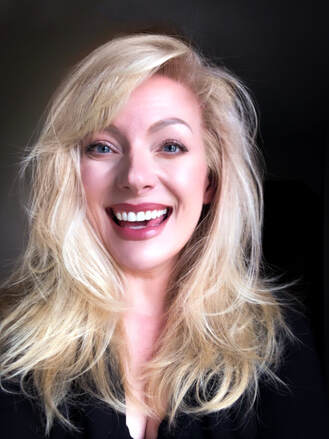
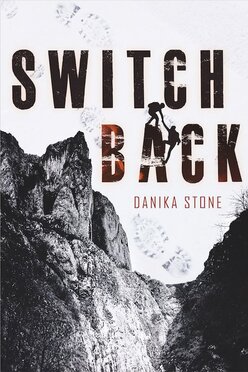

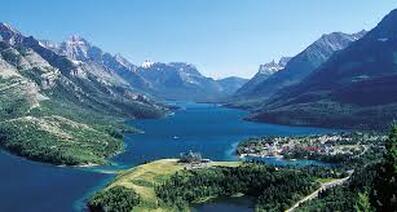
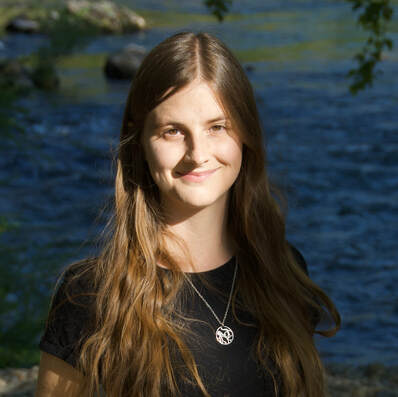

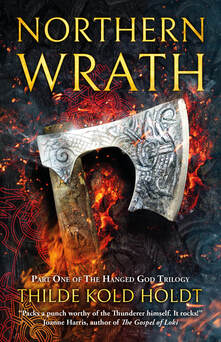
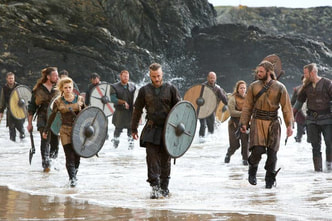
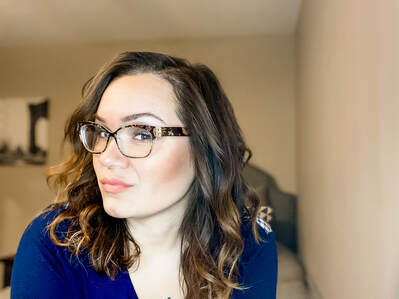
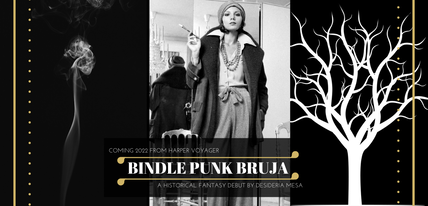
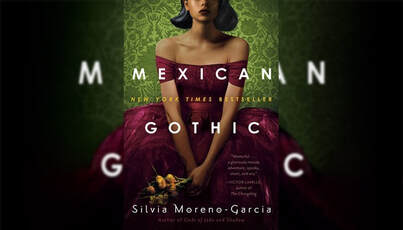
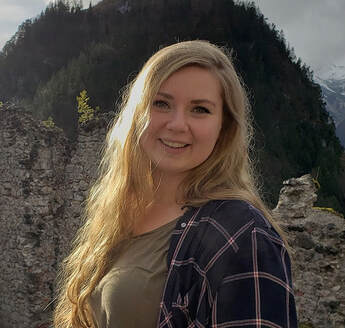

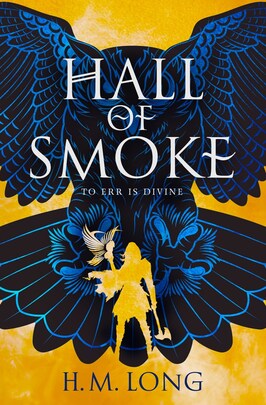
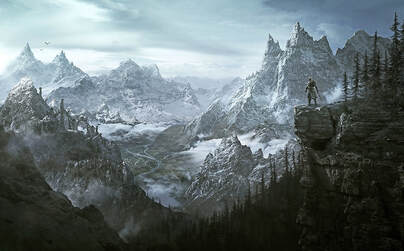
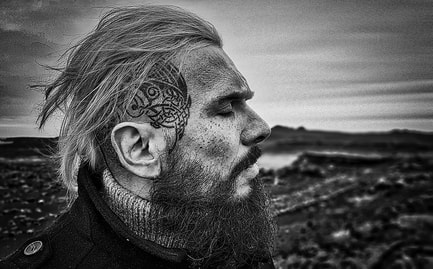
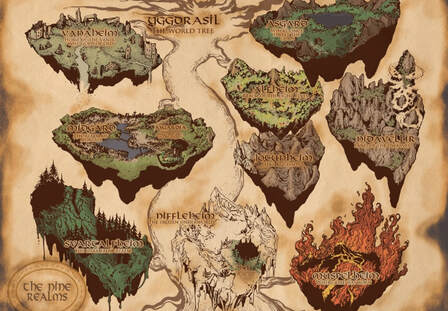
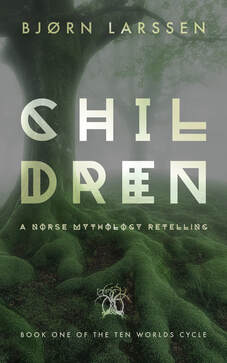
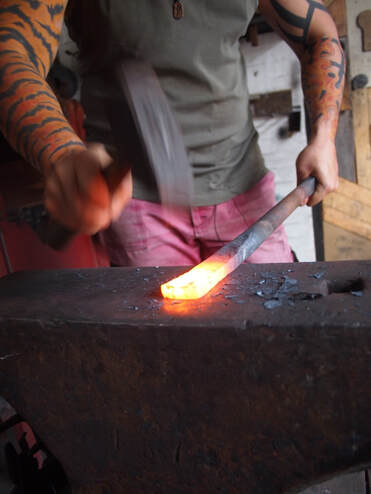
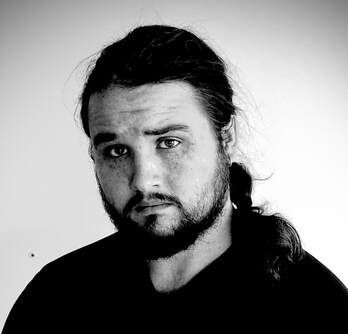

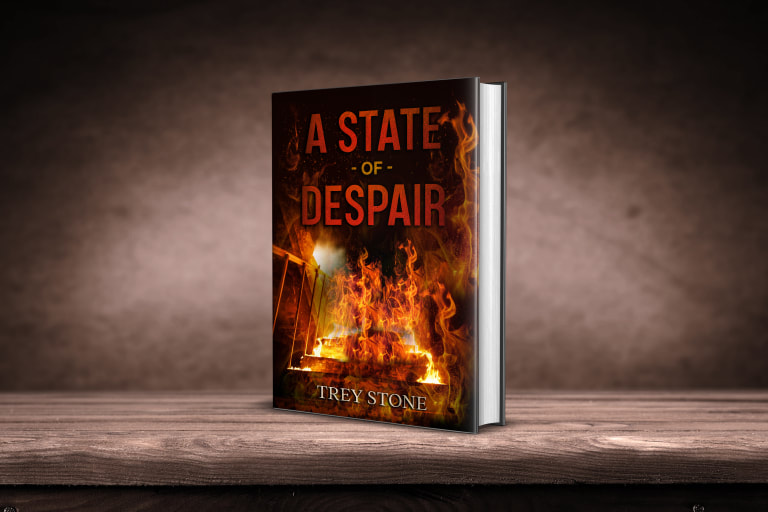
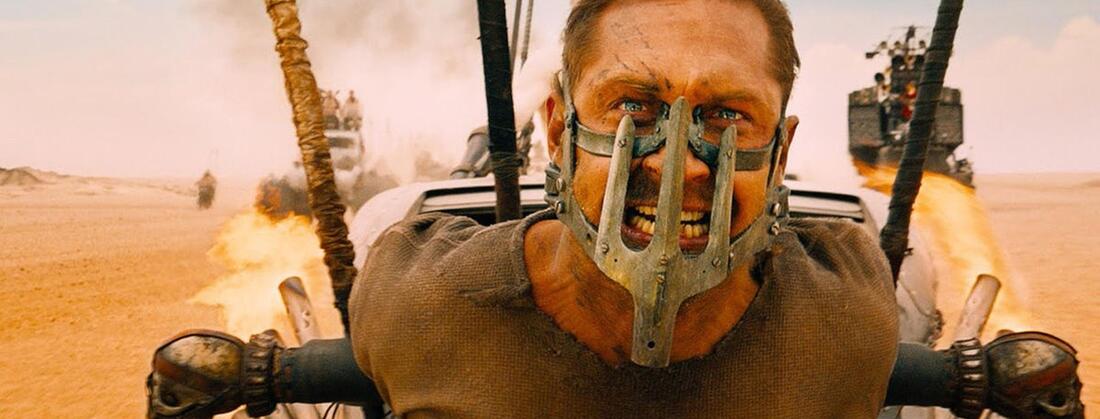
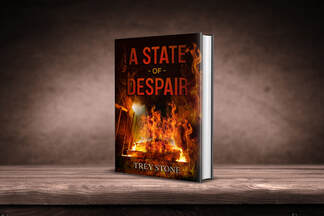
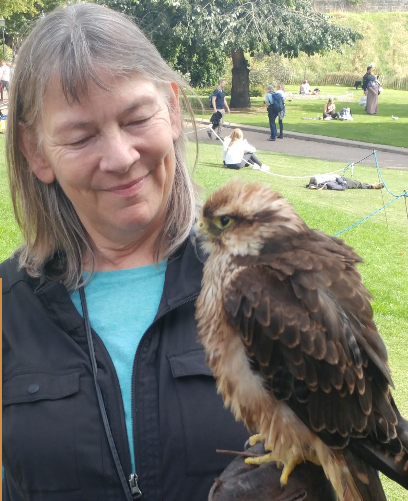
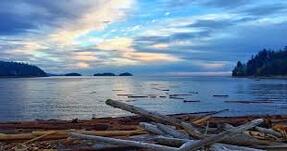
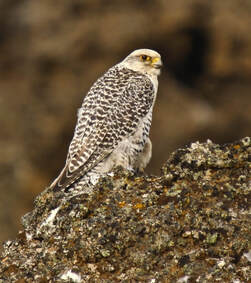
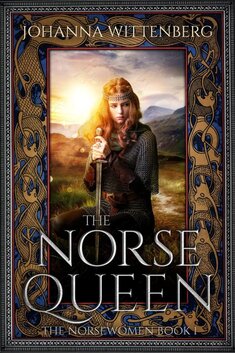
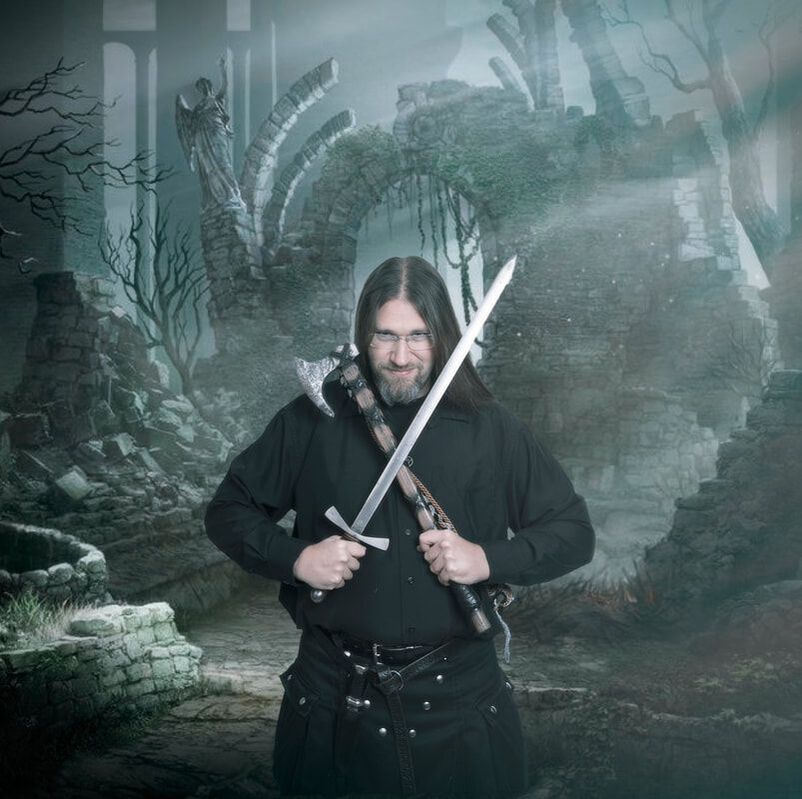
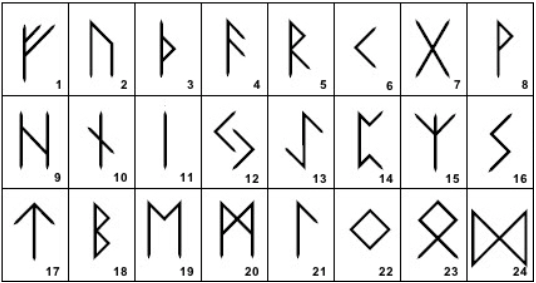
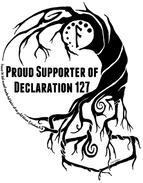
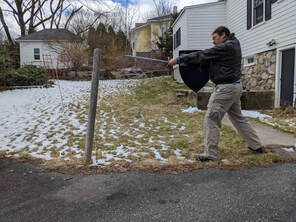
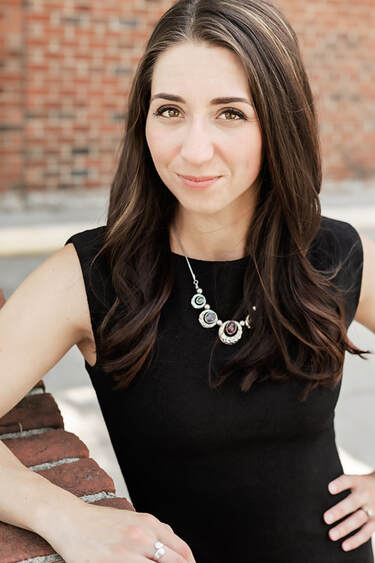
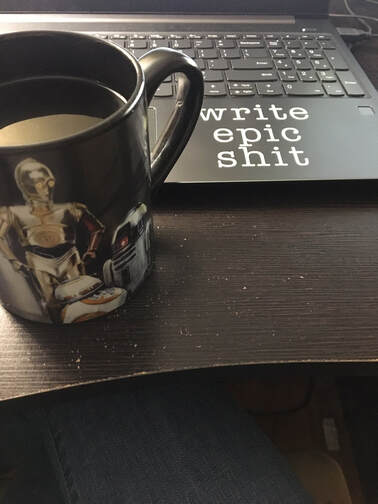
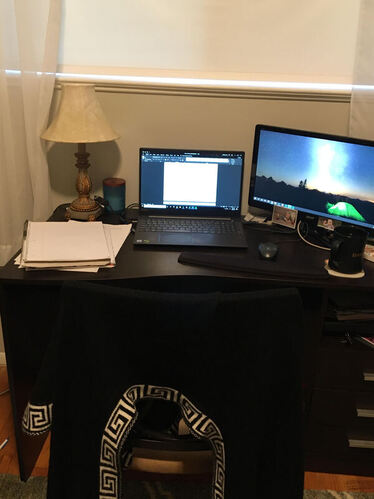
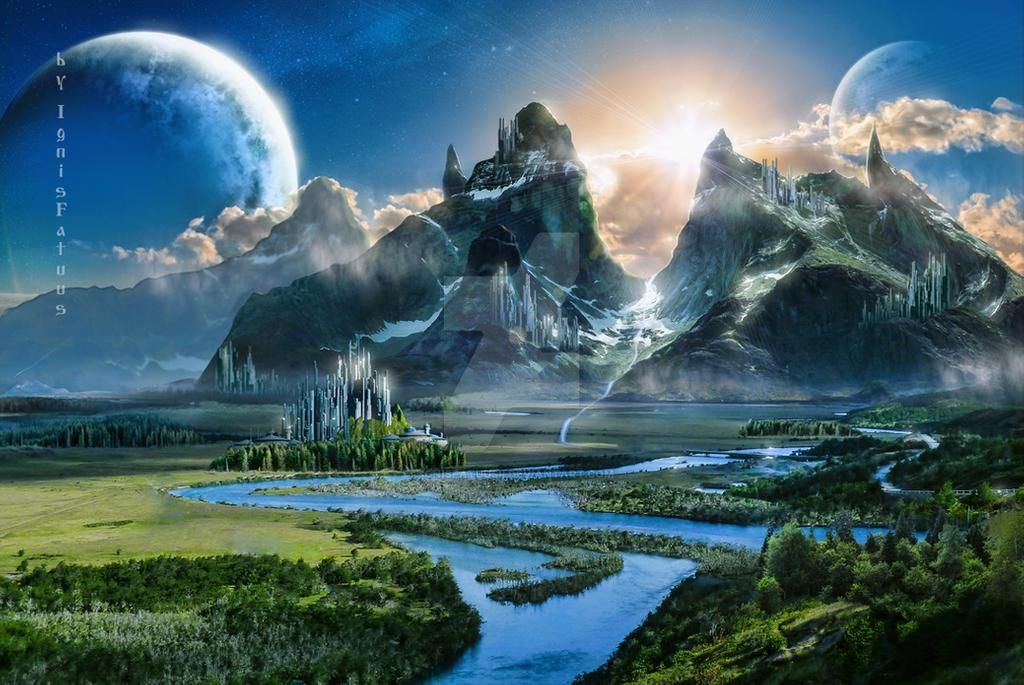

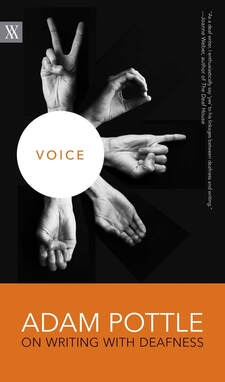
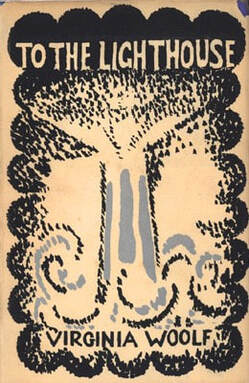
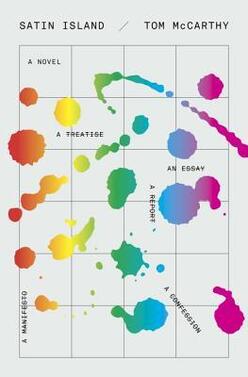
 RSS Feed
RSS Feed
